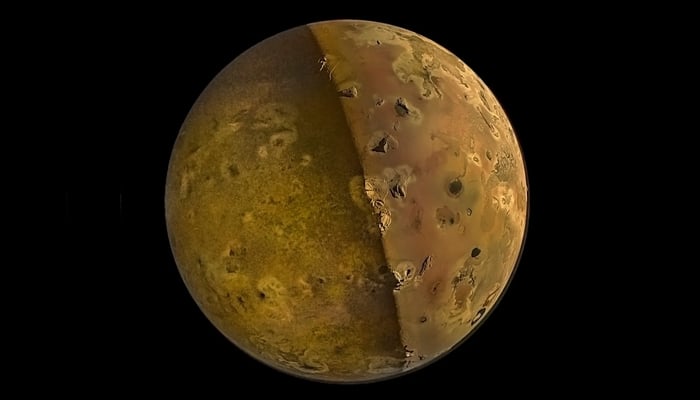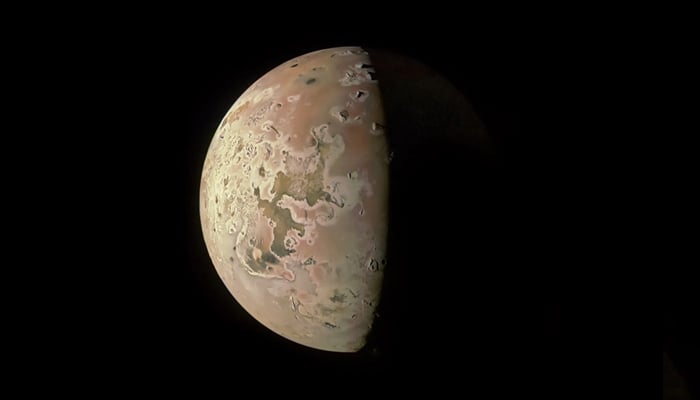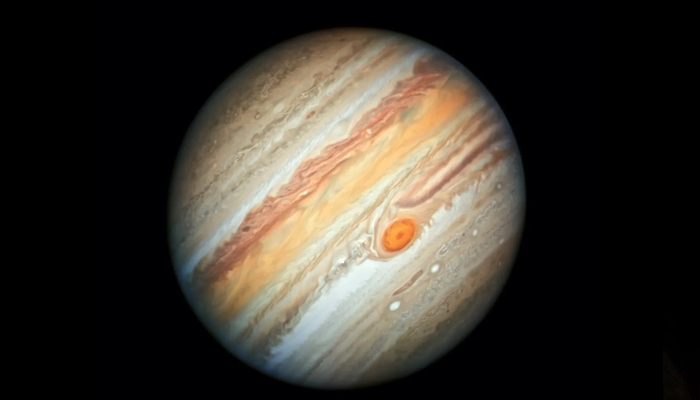Nasa reveals new information about Jupiter's moon Io
Io is simply littered with volcanoes, says expert
April 23, 2024

Nasa has used information collected by the Juno spacecraft from Jupiter’s moon Io and created an animation that shows lava and large mountains.
The Nasa’s Jupiter mission passed several times from Io in December and January, according to the Newsweek report.
While speaking with the media at the European Geophysical Union General Assembly in Vienna, Scott Bolton, said on April 16: "Io is simply littered with volcanoes, and we caught a few of them in action."

Bolton, who is the principal investigator of Juno went on: "We also got some great close-ups and other data on a 200-kilometre-long lava lake called Loki Patera. There is amazing detail showing these crazy islands embedded in the middle of a potentially magma lake rimmed with hot lava."
According to Nasa, Jupiter has 95 officially recognised moons. Io was discovered by an Italian astronomer Galileo Galilei in 1610.

The moon is the most geologically active place in our solar system with hundreds of volcanoes that can release plumes of sulfur dioxide hundreds of miles into space.
This activity is caused by intense internal friction by the powerful pull of Jupiter and its other moons. The surface of Io is composed of silicate rock and sulfur, with its atmosphere dominated by sulphur dioxide (SO2).
"The specular reflection our instruments recorded of the lake suggests parts of Io's surface are as smooth as glass, reminiscent of volcanically created obsidian glass on Earth," Bolton said.











